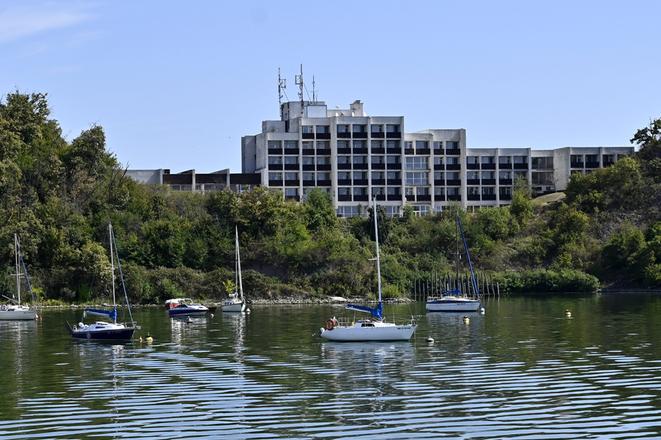People in Slovakia will pay a reduced VAT rate of 5 percent on accommodation services, a significant drop from the originally proposed increase from 10 to 23 percent. The restaurant VAT rate will also decrease to 5 percent, although the rates for non-alcoholic beverages and alcohol will remain higher, at 19 percent and 23 percent, respectively.
Tourism and Sports Minister Dušan Keketi (SNS nom.) announced this development at a briefing following discussions with the Association of Hotels and Restaurants of Slovakia and the Slovak Tourism Association, with the participation of far-right Slovak National Party (SNS) leader Andrej Danko.
“I believe that this will enhance our competitiveness,” Keketi stated.
A 5 percent VAT rate is also set to apply to fitness centres and sporting events.
Like Hungary
According to the minister, the lower VAT will secure Slovakia’s “absolute position” within the Visegrad Group (Slovakia, Czechia, Poland and Hungary) region. Hungary currently maintains a 5 percent VAT rate on accommodation, Austria has set it at 10 percent, while the Czech Republic imposes a 12 percent rate. Poland’s rate stands at 8 percent.
“This will, according to figures from the associations, help preserve more than 15,000 jobs. It will also help increase the revenues of regional municipalities from accommodation tax,” he elaborated.
Danko described the negotiations for the reduced VAT rate with the finance ministry as ‘difficult’. “The Ministry of Tourism and Sports demonstrates its relevance even in such discussions,” he remarked. It was the SNS party that insisted on the establishment of this new ministry, despite the added strain on public finances.
Danko also warned that if tourism were not granted the 5 percent VAT rate as part of the government’s consolidation measures, the SNS would block the approval of the state budget.
“If this is not achieved, I'm willing to block the entire state budget,” he added.
MPs are yet to vote on the consolidation plan.
Different VAT rates make no sense, says hotel owner
Danko asserted that the money saved for hoteliers and the tourism sector would ultimately benefit Slovakia. If the VAT on accommodation were set at 23 percent, it would represent the second-highest VAT rate on accommodation in the European Union, surpassed only by Denmark’s 25 percent rate.
Martin Novotný, general manager of the Association of Hotels and Restaurants of Slovakia, recently stated that a more than doubling of the VAT on accommodation would devastate accommodation facilities in Slovakia.
“It will redirect foreign visitors to neighbouring countries and reduce the number of jobs in the sector,” he warned in an interview with Index magazine.
Despite this, hoteliers emphasised the necessity of factoring in a new financial transaction tax into their prices. However, they currently cannot quantify how much prices will rise from next year. They would also welcome uniform VAT rates across different categories.
“Restaurants and the hotel business are interconnected; thus, taxing them at different rates does not make sense,” remarked Jaroslav Strachan, owner of a hotel and guesthouse in the village of Ždiar.


